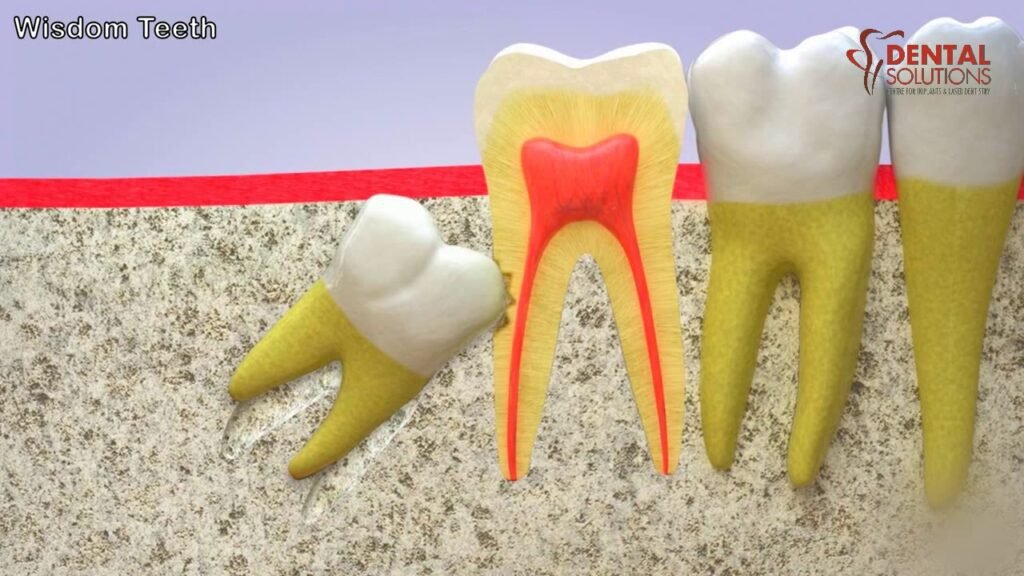Unlocking the Secrets of Wisdom Tooth Eruption

Have you ever wondered when wisdom teeth typically start to emerge? The age of wisdom tooth eruption is a common topic of interest for many, as these third molars can cause a range of dental issues if not properly monitored. In this article, we will explore the average age at which wisdom teeth begin to surface, as well as the potential complications that can arise if they do not erupt correctly. Stay tuned to learn more about this important dental milestone!
Can wisdom teeth erupt at age 40?
Yes, it is possible for wisdom teeth to erupt at age 40. While they typically start coming in during young adulthood, between the ages of 17-25, it is not uncommon for some individuals to experience the eruption of their wisdom teeth later in life. This can happen due to a variety of factors, such as genetics, jaw size, and overall dental health.
If you are in your 40s and notice the emergence of your wisdom teeth, it is important to consult with a dentist to assess the situation. Wisdom teeth can sometimes cause issues like overcrowding, impaction, or infection, so it is crucial to monitor their growth and address any potential problems promptly. Your dentist can provide guidance on whether extraction or other treatments may be necessary to ensure the health and alignment of your teeth.
Overall, while it may be surprising to have wisdom teeth erupt at age 40, it is not unheard of. By staying proactive about your dental health and seeking professional advice, you can address any concerns related to your wisdom teeth and maintain a healthy smile for years to come. Remember to schedule regular dental check-ups to keep track of any changes in your oral health and address them effectively.
What are the first signs of wisdom teeth coming in?
Are you experiencing tenderness or discomfort in the back of your mouth? It could be a sign that your wisdom teeth are starting to come in. This sensation may be felt on one or both sides and could also be accompanied by swollen gums. It's like adult teething, and it's one of the first signs that your wisdom teeth are making their debut.
How long does it take for a wisdom tooth to fully erupt?
It can take anywhere from a year to several years for a wisdom tooth to fully erupt, often causing discomfort during the process. While some individuals may have no problems with their wisdom teeth developing, many people experience crowding issues due to lack of space in their mouths.
Unveiling the Mystery Behind Wisdom Tooth Growth
Are you experiencing discomfort in the back of your mouth? You may be experiencing the growth of your wisdom teeth. These third molars typically emerge in your late teens or early twenties, and their arrival can be accompanied by a range of symptoms, from mild discomfort to severe pain. Understanding the process of wisdom tooth growth and knowing when to seek professional dental care is crucial in managing any potential issues that may arise. With proper knowledge and the guidance of a dental professional, the mystery behind wisdom tooth growth can be successfully unveiled, leading to a healthier and more comfortable oral experience.
As your wisdom teeth begin to emerge, it is important to stay informed about the potential challenges they may present. From overcrowding in the mouth to the risk of infection, being proactive in seeking dental care can help to minimize any discomfort and prevent future issues. By staying educated about the process of wisdom tooth growth and seeking professional guidance, you can ensure that the emergence of your third molars is as smooth and pain-free as possible. Don't let the mystery of wisdom tooth growth leave you feeling overwhelmed – take control of your oral health and embrace the journey with confidence and knowledge.
Decoding the Science of Wisdom Teeth Emergence
Wisdom teeth, also known as third molars, typically emerge in the late teens or early twenties. These teeth are remnants of our ancestors' larger jaws and diets, which required extra chewing power. However, with modern diets and smaller jaws, wisdom teeth often do not have enough space to properly emerge, causing pain and discomfort.
The emergence of wisdom teeth can lead to various issues, such as crowding, misalignment, and infection. In some cases, impacted wisdom teeth may need to be surgically removed to prevent further complications. Regular dental check-ups and X-rays can help monitor the development of wisdom teeth and address any potential problems early on.
Understanding the science behind wisdom teeth emergence can help individuals make informed decisions about their dental health. By working closely with a dentist or oral surgeon, individuals can develop a personalized plan to address any issues related to their wisdom teeth and ensure optimal oral health in the long run.
In the ever-evolving field of dentistry, the age of wisdom tooth eruption remains a vital aspect of oral health that requires attention and monitoring. By understanding the typical timeline for this process and being aware of potential complications, individuals can take proactive steps to maintain their dental well-being. With proper care and regular dental check-ups, the age of wisdom tooth eruption can be managed effectively, ensuring a healthy smile for years to come.